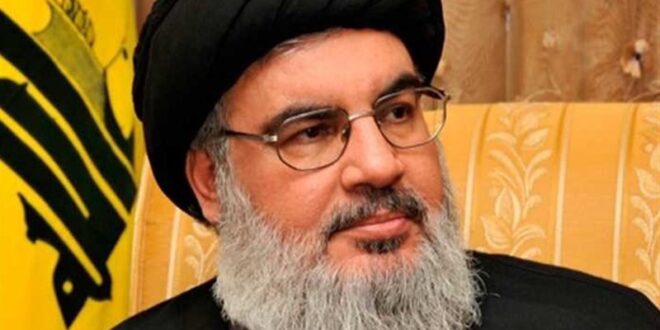The death of Hassan Nasrallah is a significant blow to Hezbollah and the organization’s key sponsor, Iran.
Hezbollah, a militant group and political party that controls much of southern Lebanon, said Nasrallah was killed in Israeli air strikes in the capital, Beirut, on September 27.
In his more than 30 years in charge of Hezbollah, Nasrallah transformed the Shi’ite militia into a major political force in Lebanon and a powerful adversary of neighboring Israel.
Hezbollah — considered a terrorist organization by the United States, although the European Union has only blacklisted its armed wing — is also a leading member of Iran’s so-called axis of resistance, a loose network of Iranian proxies and Tehran-backed militant groups against Israel and the United States.
Nasrallah’s death is “a major loss and embarrassment” for Iran, said Ali Fathollah-Nejad, director of the Berlin-based Center for Middle East and Global Order.
It constitutes the “heaviest blow to Tehran’s regional standing” since the assassination of top Iranian commander Qassem Soleimani in a U.S. air strike in Iraq in 2020, Fathollah-Nejad told RFE/RL’s Radio Farda.
Nasrallah, Soleimani, and Iranian Supreme Leader Ayatollah Ali Khamenei “constituted the nucleus of Iran’s expansive regional ambitions,” he said.
A charismatic cleric and skilled orator, Nasrallah was picked as Hezbollah chief at the age of 32. With significant financial and political assistance from Tehran, Nasrallah built Hezbollah into a powerful political and military entity in Lebanon and a major player in the region.
The 64-year-old’s death will have “serious implications” for the operations of Iran’s axis of resistance, said Hamidreza Azizi, a fellow at the German Institute for International and Security Affairs.
“In the short term, it will result in serious gaps, lack of coordination, and ambiguity,” he told RFE/RL.
Yemen’s Huthi rebels, another member of the axis, could take the mantle from Hezbollah if Iran decides to establish a new hierarchy in the network, Azizi says.
The Huthis have been “more effective” at challenging Israel since the outbreak of the Gaza war than other axis members and suffered less blowback, Azizi said.
“But there is no guarantee that they will remain as such, given Israel’s determination to go after [members of the axis] one by one,” he added.
For Hezbollah, Nasrallah’s death could be disastrous, experts say.
“Nasrallah will be difficult to replace,” said Norman Roule, a veteran of the CIA who worked at the Office of the Director of National Intelligence.
“Any successor will lack his political stature in Lebanon and personal relationship with Iran’s supreme leader,” Roule told Radio Farda.
Hezbollah has suffered major setbacks in recent months. Israel has assassinated key members of its leadership, neutralized a significant part of its military arsenal, and disrupted its communications.
“Israel’s Defense Forces have eradicated an entire generation of Hezbollah leadership who take with them a collective pool of experience that is collectively irreplaceable,” Roule said.
Heiko Wimmen of the Brussels-based International Crisis Group said Hezbollah was too “institutionalized to be decapitated.”
But, he added, the organization can only withstand so many “dramatic blows” before “something will eventually give,” he told Radio Farda.
 Eurasia Press & News
Eurasia Press & News



